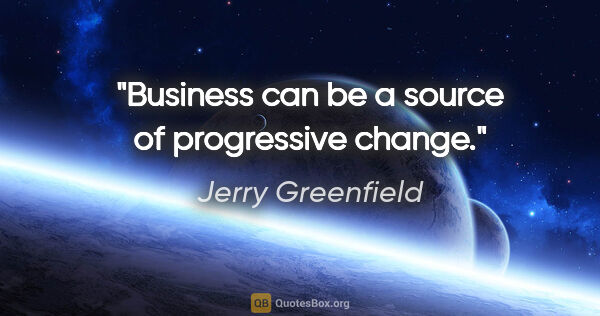Progressive Change Quotes
Progress, far from consisting in change, depends on retentiveness. When change is absolute there remains no being to improve and no direction is set for possible improvement: and when experience is not retained, as among savages, infancy is perpetual. Those who cannot remember the past are condemned to repeat it. In the first stage of life the mind is frivolous and easily distracted; it misses progress by failing in consecutiveness and persistence. This is the condition of children and...
George Santayana

It is true that a man (a silly man) might make change itself his object or ideal. But as an ideal, change itself becomes unchangeable. If the change-worshipper wishes to estimate his own progress, he must be sternly loyal to the ideal of change; he must not begin to flirt gaily with the ideal of monotony. Progress itself cannot progress
Gilbert K. Chesterton
I am not an advocate for frequent changes in laws and Constitutions. But laws and institutions must go hand in hand with the progress of the human mind. As that becomes more developed, more enlightened, as new discoveries are made, new truths discovered and manners and opinions change, with the change of circumstances, institutions must advance also to keep pace with the times. We might as well require a man to wear still the coat which fitted him when a boy as civilized society to remain...
Thomas Jefferson
The ugliest thing in America is greed, the lust for power and domination, the lunatic ideology of perpetual Growth - with a capital G. 'Progress' in our nation has for too long been confused with 'Growth'; I see the two as different, almost incompatible, since progress means, or should mean, change for the better - toward social justice, a livable and open world, equal opportunity and affirmative action for all forms of life. And I mean all forms, not merely the human. The grizzly, the wolf,...
Edward Abbey
Our way–the Western Way–has always been a "work in progress." Questions of life and death, good and evil, justice and tragedy–these are never definitively settled, but must be addressed again and again as personal and public worlds shift and change. We hold our morals to be absolutes, but the context of our actions and decisions is forever changing. We are not relativists because we seek to re-evaluate again and again our most crucial moral positions.
Anne Rice
- 1
- 2


